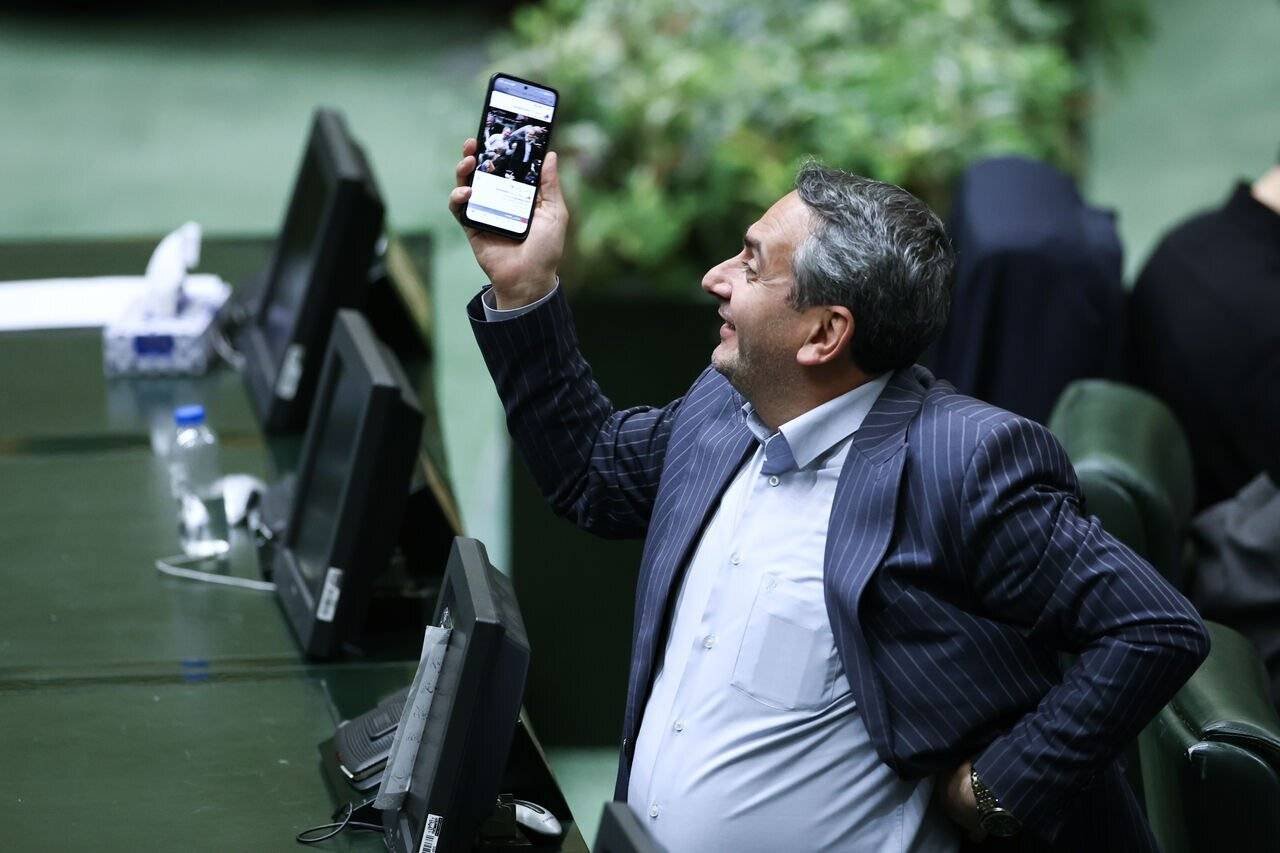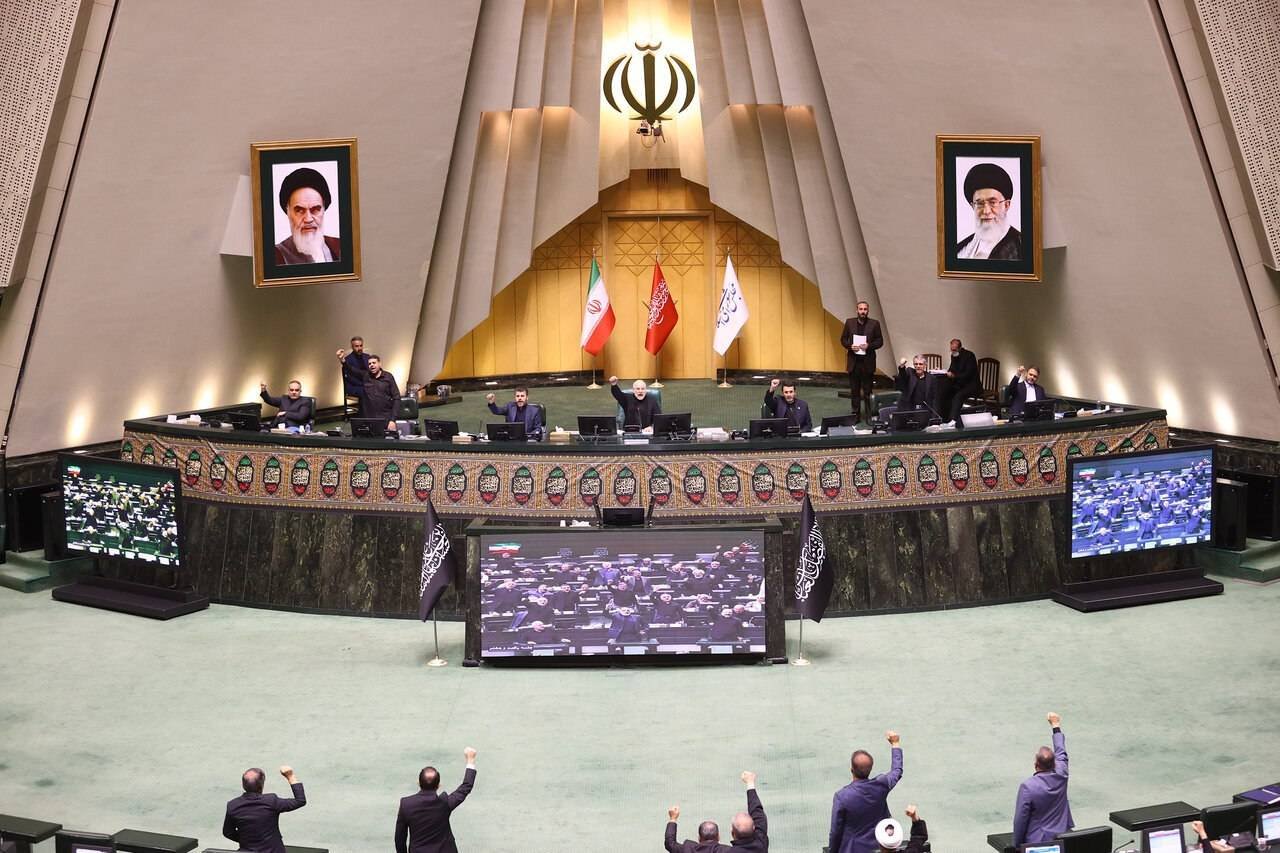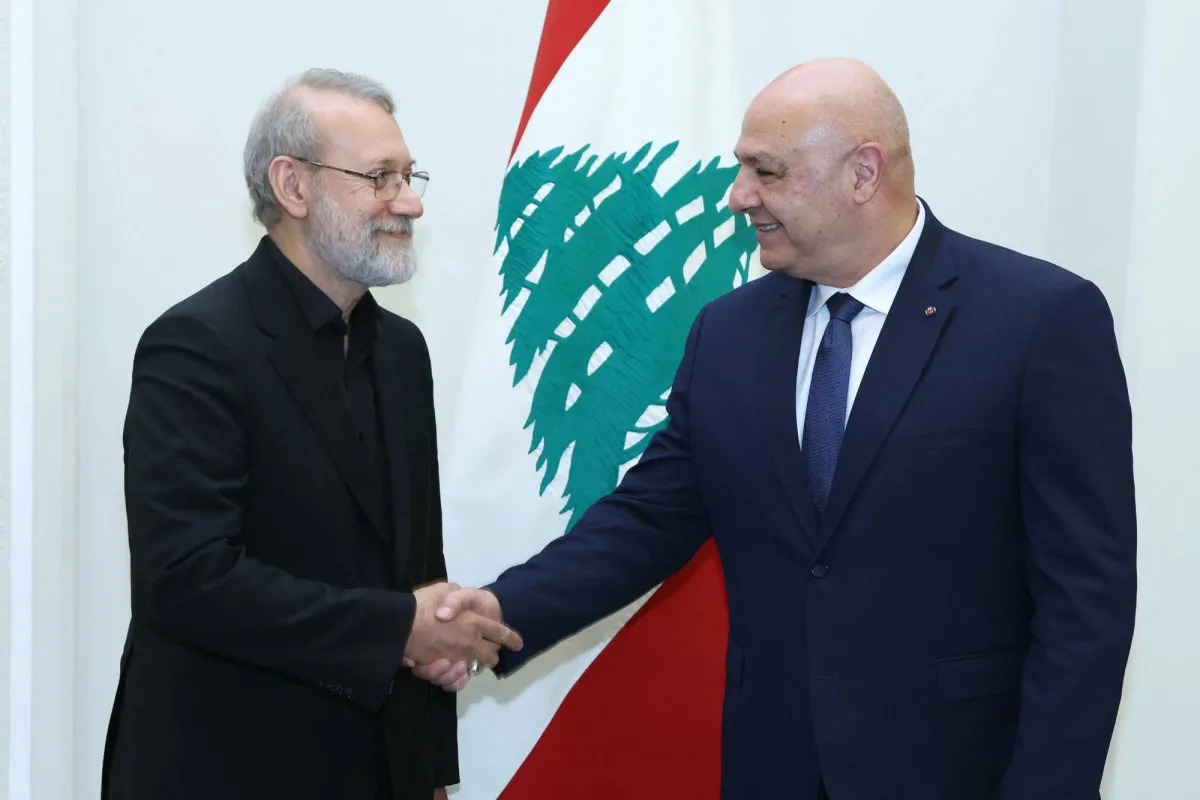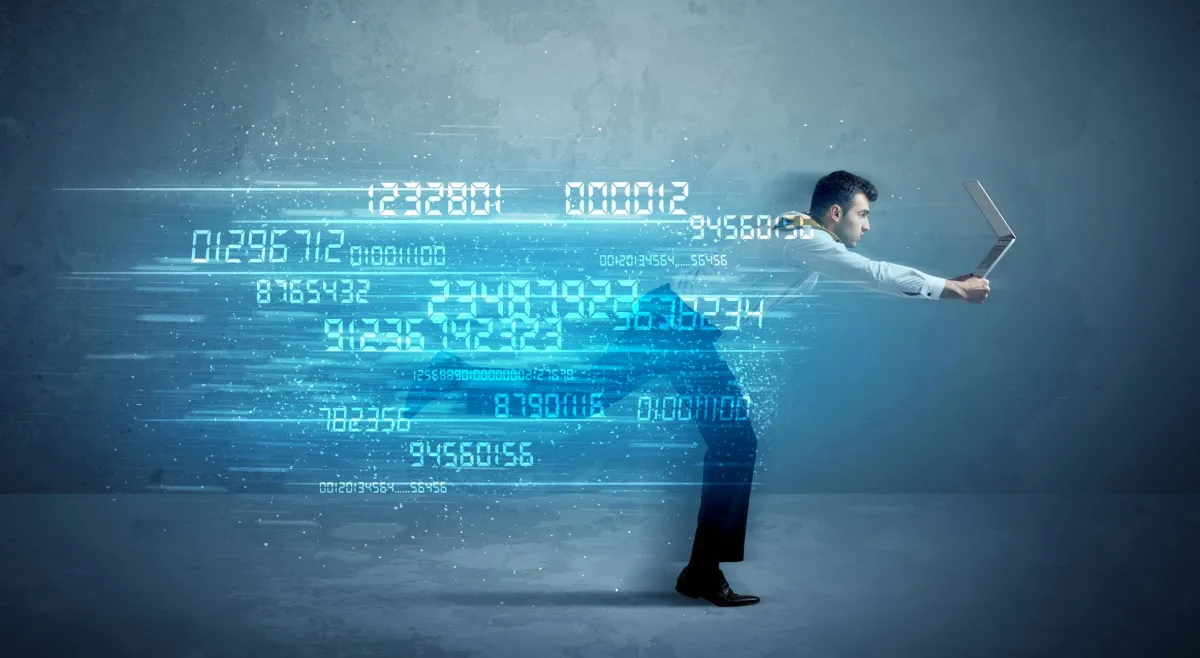The Iranian parliament approves a project to tighten the Internet control
The Iranian parliament approved a draft law submitted by the government at the request of the judiciary, aiming to “combat the spread of misleading news content in the digital space”, despite the warnings of many political activists and journalists’ warnings not to tighten the Internet control. In parallel, Parliament Speaker, Mohamed Baqir Qalibaf, announced the ban on the use of deputies for mobile phones during public sessions.
“Regardless of security considerations, we are in the hall designated for legislation and phones should not be used.” He added, “Even if the security aspects are addressed, the decision of the Presidency is to prevent mobile devices from entering the hall.” He added, “The discussions are continuing until the final decision is taken.”
Qalibaf’s comments came in response to some deputies protesting the decision. “Failure to carry mobile phones turned into a problem for deputies … the people expect us to be available to them, but this matter has become difficult in this way.”
In the past, procedures were imposed to reduce contact by cutting the signal during the sessions, but these restrictions were gradually removed.
“Citizens should remain in constant contact with their representatives, but the security services have made notes on the use of phones, after the sessions ended,” said Qalibaf. He added: “The use of phones inside the council hall and the competent committees is not allowed, while deputies ‘offices can receive citizens’ contacts and respond to them.”
It has been gradually imposed on the Internet since June 13, after the widespread Israeli attack on Iran, which Tehran responded with missile strikes and launching marches.

Iran is increasingly concerned about the penetration of the Israeli intelligence agency (Mossad) in light of its indirect war of decades with Israel, which managed to assassinate a large number of military leaders and nuclear scientists in the 12 -day war.
A law on the recommendation of the judiciary
Last Tuesday, Iranian President Masoud Boukhskian sent a draft law to Parliament aimed at tightening control over the content of social media, under the title “Control of false and misleading news.” The draft law was prepared based on a proposal from the judiciary, according to government media.
The Iranian Parliament website reported today that the parliament agreed during the public session held this morning (Sunday), the government’s request to address the urgent project, and received 205 supporters, compared to 49 opposition votes and 3 abstaining votes. The session was attended by 260 out of 290 deputies in the Iranian parliament.
Kazem Delkosh Apatry, the government representative, explained that the draft law consists of 22 articles that define the tasks of the relevant ministries, and clarify the violations and penalties prescribed against them, according to Iranian official television.
Delkosh pointed out that the digital space in the country has been used for many years, and it has multiple advantages that include the flow of information, the speed of its spread, and the expansion of the popular participation circle, but he stressed that it is “a tool that needs a legal framework, as the publication and re -publishing distorted and misleading news can harm the sovereignty of the state, undermine the psychological security of society, nourish populism, and threaten national cohesion.”
He added, “The distinction must be made between a healthy and intact digital space, as the guide Ali Khamenei warned of this, and a committee has formed his command, but it did not receive adequate attention. Approving the project to study the project urgently will contribute to organizing the digital space, and the government is ready to cooperate with Parliament to develop its details.
The project provides for tight penalties that include prison, financial fines, and deprivation of some rights, against electronic space users.
The law emphasizes the prosecution of the publication of content by well -known personalities, or those with social influence, officials, or employees of government departments. The punishment also lasts in the event of “spreading unrealistic content using fake accounts, or through robots and automatic systems”, in addition to “repeating the violation, or spreading them at critical times such as crises or wars, or in cases of threats to national security.”

The law proposes to assign the Iranian Ministry of Culture and Information to establish a national system to receive reports on public activities in the electronic space, and to issue warnings, provided that the resulting reports are referred to the judiciary.
Criticism
The law has faced criticism by activists in various fields, warning of damage to the freedom to access the Internet and social media. More than a million people signed a petition, published by a number of civil and media figures, rejecting this project.
5 of the bodies and unions in the information and communication technology sector addressed the Iranian president, warning of security, economic and social repercussions, to cut or restrict access to the global Internet.
In her message, these bodies addressed President Masoud Bouchakian: “Withholding the Internet is not a solution to confront cyber threats; Rather, a step that weakens national governance, deepens Iran’s isolation, and causes severe damage to its economic and technological infrastructure.
The letter indicated that “the restriction of the Internet will lead to the loss of control of the digital space in favor of external parties, the migration of competencies, and the weakening of the competitiveness of the Iranian digital economy.”
It also warned that disrupting the connection to the global network is harmful to cybersecurity, because it prevents the necessary updates and international cooperation to protect sensitive systems. In addition, the message said that “these policies complement the isolation episodes imposed on Iran, and weaken its cultural and economic presence globally”, as well as “its threat to the psychological and social security of society by deepening the loss of confidence and the spread of rumors.”
The presidency stressed that “the path of progress and national security does not pass through closure; Rather, through smart interaction with global technology and the support of local elites. ” She called for the adoption of advanced technical methods to enhance cybersecurity instead of resorting to cutting communications, confirming its willingness to cooperate with the government in strengthening digital infrastructure and increasing the country’s flexibility in facing challenges.
Last week, the Revolutionary Guards Intelligence Service warned the Iranians of espionage activities and increased recruitment attempts through mobile phone applications by hostile countries intelligence.
Days before that, Iranian Intelligence Minister Ismail Khatib refused to reveal the number of detained spies at once, considering this harmful to national security. He stressed that the authorities arrested hundreds on charges of espionage and support for Israel during the recent war, noting that the numbers will be announced gradually. He explained that the security services intensified their efforts to confront infiltration, calling on the Iranians to cooperate with intelligence to preserve national security.
Later, the president of the judiciary, Ghulam Hussein Mohseni, called for the arrest of about two thousand people during the war on suspicion of spying for Israel. He said: “A large number of these were released after completing the investigations, and ensuring that they are not spies and did not cooperate with Israel.”



